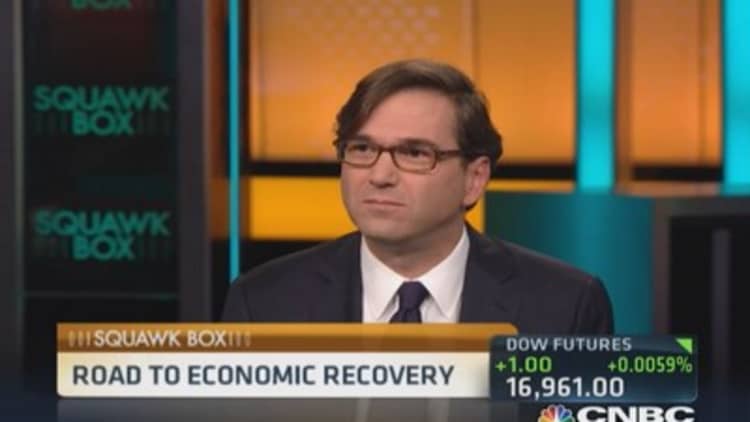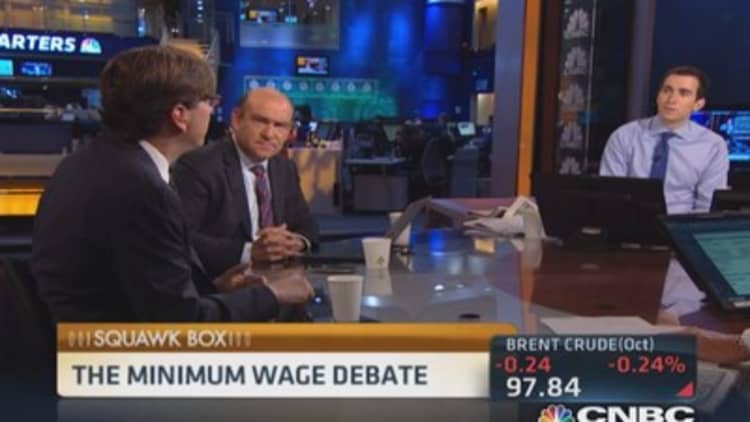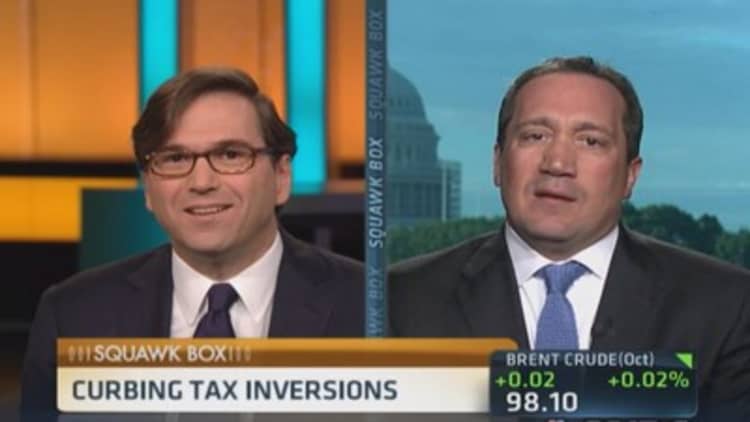
Making the White House case for an improving economy and business climate, Jason Furman, chairman of the Council of Economic Advisers, told CNBC on Friday that investors who bought the when Barack Obama took office in January 2009 would be up about 140 percent.
"I think a whole bunch of things have gone into that increase—a lot of it being a sign of the strengthening economy," Furman said in a "Squawk Box" interview.
While acknowledging that challenges remain for the economy, he said, "it looks like things are moving in the right direction and moving a bit faster." He pointed to an improving labor market and played down last month's weaker-than-expected jobs report.
"If you look at jobs over the course of the year, they're averaging 215,000 jobs a month. That's up from 194,000-job-a-month pace we had last year," he continued. "You look at the unemployment rate, it's fallen 1.1 percentage points in the last 12 months."
Critics of the president say the stock market and the economy have rebounded in spite of the administration's policies and because of the Federal Reserve's easy monetary policies over the past five years.
Read MoreWhy the key to the economy may be in your gas tank
Refusing to comment on the Fed directly, Furman said: "If you're trying to look at the causes of [income] inequality I don't think monetary policy as a general economic matter has a whole lot to do with it."
"I think there are a lot of forces that led to a buildup in inequality," he continued. "It's something that's happened over several decades."
Minimum wage debate

Obama has been a proponent of ways to narrow that gap, including a push to raise the minimum wage—a move opponents say would only hurt businesses and in turn the economy.
"Twenty-eight million people would get a raise if we raised the minimum wage," Furman said, adding that since the president first called for an increase last year, many states have taken action on their own, giving 7 million people raises.
In this year's State of the Union address, the president called on Congress to hike the national minimum wage from $7.25 to $10.10 an hour, an increase he gave to new federal service contracts by executive order. A minimum wage increase would have little impact on the unemployment rate, Furman said.
He also argued that a wage increase would help consumer purchasing power, which would fuel additional business investment. "Twenty quarters since the recession ended, business investment [is] up 28 percent. The last business expansion, business investment was up 20 percent."
Corporate tax reform

Many Obama critics say overhauling the tax code, specifically the high corporate taxes compared to other nations, would make businesses more willing to part with their stockpiles of cash and make capital investments. It would also help, they say, to stem the trend of inversions by companies buying foreign rivals to move their headquarters overseas to friendlier tax shores.
"We are going to need to do something about inversions. We are going to need to do something about profit-shifting," Furman said, "even as we make our [business] tax code more attractive."
He said the White House wanted to do all of that, but felt Congress was not up to the task. "So we wanted to legislate just on inversions. Congress looks like it's [also] incapable of doing that. And as a result, the Treasury is reviewing the set of options it has. And we'll be making a decision very soon."
—By CNBC's Matthew J.Belvedere


